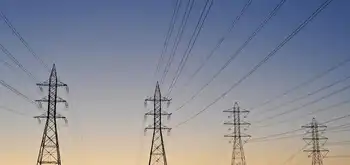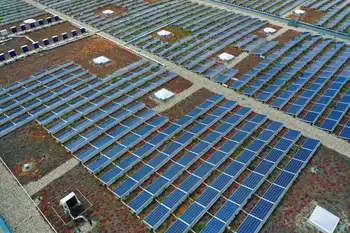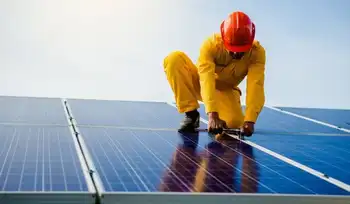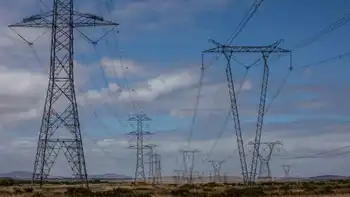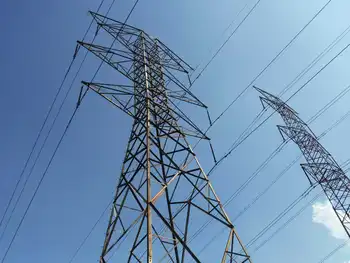Delays in offshore wind turbine project criticized
By Newsday
CSA Z462 Arc Flash Training - Electrical Safety Essentials
Our customized live online or in‑person group training can be delivered to your staff at your location.

- Live Online
- 6 hours Instructor-led
- Group Training Available
The Board of Public Utilities now estimates the earliest date for the pilot project to be generating electricity from wind turbines off Atlantic City is late in 2012.
"The sooner the better," said Codey, whose order created the study panel that recommended New Jersey proceed with an experimental wind farm. "I remember the 1970s waiting in line for gas. What have we done since then? Shame on us."
Gov. Jon Corzine is also eager to see the project progress because harnessing power from renewable sources is part of his long-term goal for the state to become more energy efficient.
Corzine has promoted a policy, adopted by the BPU, of producing 20 percent of the energy in the state from renewable energy sources by 2020. Wind is an integral part of that.
In a 2006 report, the group named by Codey recommended building up to 80 wind turbines off the New Jersey coast to assess the impact of offshore wind farms on sea creatures, birds and fishermen.
Last October, the state Board of Public Utilities approved up to $19 million worth of grants to support the development of the offshore wind farm. The goal is that it produce 350 megawatts of energy – enough to power between 87,000 to 105,000 homes each day.
Five companies submitted proposals, and the BPU hopes to choose one in October. An August decision was put off so the authority could bring in bidders for oral presentations before making their choice.
Sen. John Adler, a Camden County Democrat, accused the BPU of "paralysis by analysis" and called for an end to the delays.
"It's unconscionable for the state bureaucracy to be blocking approvals when families and businesses are suffering daily from outrageous energy costs," said Adler, a member of the Senate Environment Committee. "It seems as though there's too much wind in the Newark offices of the BPU and not enough determination to get offshore windmills tested promptly."
Adler, and environmentalist Jeff Tittel of the Sierra Club, questioned how the state could achieve the twin goals of generating 20 percent of its energy from renewable sources by 2020 and producing 1,000 megawatts of electricity through wind power – when it has not been able to get the 350-megawatt pilot project in motion.
"If you don't take the first step, you're not going to get there," said Tittel.
Lance Miller, chief of policy and planning for the BPU, said projects of this magnitude take time. He defended the BPU's diligence in selecting the best proposal.
"This is the first time we are considering offshore wind," Miller said. "It is one of the first times in the United States it's been considered. It's something you want to do right."
Delaware and Massachusetts are planning similar projects offshore.
The only large-scale wind farm in New Jersey is onshore and operated by the Atlantic County Utility Authority, generating energy for roughly 500 homes. Separately, New Jersey is considering a bill to allow owners of preserved farmland to build and operate wind or solar energy facilities on their farms.
The BPU will provide $19 million in startup funds to the company it picks for the offshore project, enough money to help the firm through the permitting process but just a fraction of the total cost of building the wind farm.
The winning bidder faces many additional regulatory hurdles before construction can begin, including obtaining leases to build in federal waters and clearance from the state Department of Environmental Protection.
But Adler wants to see the approval process expedited.
"Other countries have had offshore windmill farms for years," he said. "It shouldn't be so hard to act."





